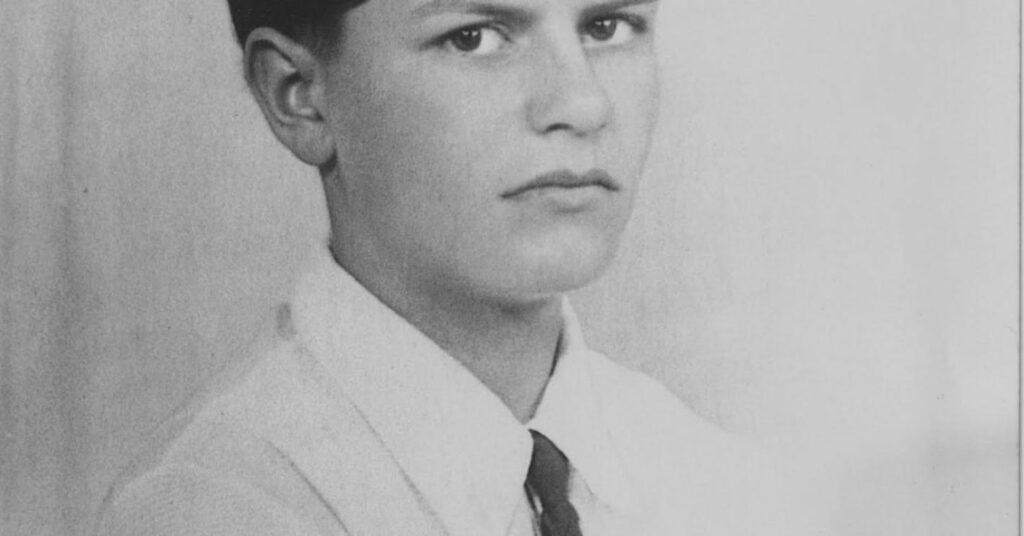Interventions for gender dysphoria, unhappiness or incongruence between how one feels and their expressed gender, can range from changing clothes and hair to medications and surgeries. For some, this controversial topic elicits strong emotions and a range of opinions, especially when it comes to caring for minors. Some view surgical interventions for children as the ultimate acceptance of how a child identifies. Others see invasive procedures to alter gender as missing the point of self-acceptance, as well as risky, and ultimately distracting from larger issues of human worth.
article continues after advertisement
In her keynote address at the 2023 South by Southwest convention in Austin, Texas, Tilda Swinton said, “I’m not a big believer in identity. I don’t know that we ever should feel the pressure to identify ourselves as one thing with a sort of menu attached because life is way too interesting for that, because we are morphing all the time.” Swinton goes on to say that choosing an identity creates a burden and that we should be easier on ourselves.
Dr. Nica Borgese is a Chicago-born cell biologist from the Institute of Neuroscience of the National Research Council in Milan, Italy, and the granddaughter of Nobel Prize laureate Thomas Mann. Borgese shared a personal story with me below about her mother’s experience of moving beyond gender stereotypes and living into non-stereotyped roles. By sharing this story, Borgese hopes to foster healthy discussion that is inclusive and kind toward self and others.
***
Source: Nica Borgese/Used with permission
This is my mother, Elisabeth Mann Borgese, the youngest and dearly loved daughter of Nobel Prize laureate Thomas Mann, at the age of 13. She often told me stories about her childhood and of how, during those early years, she would have liked to be a boy. This desire may have been in part caused by her early ambitions, as she was aware of the fact that girls were considered intellectually inferior to men, by society and by her father, too. However, her discomfort started already at the age of 4-5 years, so by today’s standards she might have been considered to be affected by gender dysphoria and offered hormonal treatment during adolescence.
article continues after advertisement
My mother turned out to be quite a fulfilled, albeit atypical, woman. Although she wrote on the problems and roles of women in society (Acsent of Woman, 1963, New York, G. Braziller), she never really identified with those of her gender, had little empathy for women’s liberation movements and got along with men better than with women. I myself, as a very young child, was (proudly) aware of how, with her straight short brown hair and absence of makeup, she markedly differed from the other moms, whose lipstick, permed hair and fashionable clothes seemed to me to belong to another, less appealing, world.
My mother was attracted and attractive to men, wanted children, married and gave birth to me and my sister early (at 22 and 26 years). After the death of my father, she fell in love again more than once (always with men), and had some lasting heterosexual relationships during her lifetime. During her entire life, she pursued her broad range of interests and her ideals. She loved family, friends, dogs, enjoyed playing the piano, cooking, skiing, eating and drinking well in good company. At the professional level, inspired by her collaboration with my father in support of world government during the post-World War II years, she became a recognized expert on international ocean management, leaving a lasting legacy on ocean governance and on the rights of developing countries to access its resources. With her soft charisma, she was able to impress her idealistic vision on professionals of the international organizations where she worked and where she was known as “the mother of the oceans”.
Source: Nica Borgese/Used with permission
Although one can only speculate as to how things would have gone had my mother transitioned, my feeling is that the quality of her life would have been a lot worse than it turned out to be; indeed she had a rich and fulfilling life, both at the personal and professional level, thanks to a unique personality that served her well.
article continues after advertisement
Undoubtedly, there are some children whose quality of life may be improved by medical interventions starting at adolescence. Yet my feeling is that most children affected by gender dysphoria could be happy keeping their biological sex, as my mother did, if only society did not impose such a strict (binary) division between male and female role models. I see how my lovely granddaughters are literally bombarded by constant stimuli towards the female stereotype, in the literature that is offered to them, in the toys they play with, which in addition to traditional dolls or fashion dolls, include toy make-up and nail polish kits, jewelry sets, and so on. Clearly, a girl who doesn’t feel comfortable with these values risks becoming a social outcast, acceptable to the groups of neither the girls nor the boys. The same is presumably true for boys who do not adhere to the masculine values blasted on them from early childhood onward. To me, what is needed to address gender dysphoria is to move beyond these stereotypes, rather than to administer irreversible medical treatments to children in a phase of their lives marked by turbulent changes. Although my mother did not live to witness the discussions and practices going on today, she never adhered to established gender roles, and thanks to her nonconformity, led a life that was useful to herself, to those close to her, and to society at large.
Source link : https://www.psychologytoday.com/za/blog/being-awake-better/202407/gender-dysphoria-is-self-acceptance-an-option?amp
Author :
Publish date : 2024-07-26 21:04:41
Copyright for syndicated content belongs to the linked Source.
